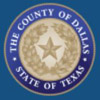
Some print companies are considered critical/ essential in terms of current mandated pandemic controls in Dallas. Examples would be companies where most of the product is packaging for pharma or foods.
While there are memos from the US Postal Service declaring print essential to their business… In Dallas this memo may not be accepted as proof a print company is essential/critical in cases where a company only prints marketing materials or retail POP. In this case, the company can open now but must follow guidelines for non-essential businesses that were just issued for Dallas County. I’ve highlighted the key requirements currently in effect below for three types of businesses: Essential, Non-Essential, and Construction.
Note that on Monday, April 27, Governor Abbott will be outlining state level guidelines for re-openings.
Requirements for Essential Businesses /Critical Manufacturing
- All employees must take their temperature at their residence before going to work at a manufacturing or distribution center. If a worker has a temperature above 99.6 degrees Fahrenheit, then they are prohibited from going to work and must remain at their residence;
- To the greatest extent possible and as equipment becomes available, employers must implement a system whereby supervisors check the temperature of all employees before the employee begins work. If an employee has a temperature above 99.6 degrees Fahrenheit, then they are not permitted to work and must be sent home immediately;
- Gatherings during meals or breaks are prohibited;
- Employees must keep a six (6) foot distance between people at all times, unless the work being performed requires multiple individuals for the safety of the employees;
- To the extent practicable, employers shall adjust shift timing to allow for greater physical distance between employees;
- Employers must allow non-essential personnel to work from home when possible;
- Employers must provide soap and water, or hand sanitizer if no soap or water is available, in the workplace, including all restrooms. Employers shall ensure that adequate supplies of soap and hand sanitizer are maintained;
- Employees must wash their hands for at least twenty (20) seconds before beginning work, before any food preparation, before and after the use of shared items, after any meal or restroom breaks, and immediately prior to departing the work site.
- Employers shall discourage employees from sharing work tools when possible.
- Rest breaks of at least fifteen (15) minutes for every four (4) hours worked must be provided so employees may follow hygiene guidelines;
- There shall be no adverse action taken against an employee who has, due to possible exposure to coronavirus, (1) been quarantined or advised to self-quarantine; (2) have not reported to work because the worker has a temperature of 99.6 degrees or higher; and (3) requested to use paid sick leave under the employer’s policy; and
- Employers must designate both a member of management as the COVID-19 Safety Monitor and a senior hourly employee (that is not a member of management), or a non-management DALLAS COUNTY 17 employee if an hourly employee is not available, as the COVID-19 Vice Safety Monitor at each site to have the authority to work together to enforce these rules. Employers in unionized workplaces should consult with the employee’s representatives on this designation.
- The above declaration was later amended to include face coverings.
Because an infected person can transmit the COVID-19 virus to others before showing any symptoms, the covering of a person’s nose and mouth is necessary to help slow the spread of the virus. Effective at 11:59 p.m. on April 17, 2020, to the greatest extent possible all persons over the age of two (2) shall wear some form of covering over their nose and mouth, such as a homemade mask, scarf, bandana or handkerchief, when patronizing an Essential Business or using public transportation pursuant to the rules outlined in Exhibit G.. To the greatest extent possible, all non-medical employees who work at an Essential Businesses or perform services that are exempt under this Order must wear face coverings over their noses and mouths while performing their work. An owner or operator of an Essential Business may refuse admission or service to any individual who fails to wear face covering. Wearing a face covering is not a substitute for maintaining 6-feet social distancing and hand washing, as these remain important steps to slowing the spread of the virus.
Requirements for Non-Essential Businesses & Retail
- All employees must be trained on environmental cleaning and disinfection, hand hygiene, and respiratory etiquette.
- All employees must be screened before coming into the business for new or worsening cough; shortness of breath; sore throat; loss of taste or smell; feeling feverish or a measured temperature greater than or equal to 100.0 degrees Fahrenheit; or known close contact with a person who is lab-confirmed to have COVID-19. Any employee who meets any of these criteria must be sent home.
- Employers must provide soap and water, or hand sanitizer if no soap or water is available, in the workplace, including all restrooms and food preparation areas.
- Employees must wash their hands for at least twenty (20) seconds before beginning work, after each interaction with a customer, before any food preparation, before and after the use of shared items, after any meal or restroom breaks, and immediately prior to the end of the work shift.
- All employees must wear face coverings.
- Employees must maintain at least 6 feet separation from one another.
Requirements for Construction
- All workers and contractors (hereafter referred to as “workers”) must take their temperature at their residence. If a worker has a temperature above 99.6 degrees Fahrenheit, then they are prohibited from going to work and must remain at their residence;
- To the greatest extent possible, implement a system whereby supervisors must check the temperature of all workers and contractors with a forehead thermometer before the worker begins work. If n worker or contractor has a temperature above 99.6 degrees Fahrenheit, then they are to be sent home immediately;
- To the greatest extent possible, shift work must be implemented such that each shift shall have no more than fifty percent (50%) of the workers who were on shift on March 16, 2020. Once assigned to a shift, workers shall not change from one shift to another;
- To the greatest extent possible, limit crossover of subcontractors;
- Gatherings during meals or breaks are prohibited;
- Workers must keep a 6 foot distance between people at all times, unless the work being performed requires multiple individuals for the safety of the workers;
- Workers must not use a common water cooler. Employers shall provide individual water bottles or instruct workers to bring their own;
- Employers must allow non-essential personnel to work from home when possible;
- Employers must provide soap and water and hand sanitizer in the workplace, including all restrooms. Ensure that adequate supplies are maintained;
- If running water is available at the site, workers must wash their hands for at least twenty (20) seconds before beginning work, when they remove gloves, and before and after the use of shared items such as tools or multi-user devices, before and after any meal or restroom breaks, and when their shift or work time ends.
- Rest breaks of at least fifteen (15) minutes for every four (4) hours worked must be provided so workers may follow hygiene guidelines;
- Employers must provide one (1) working flushing toilet for every fifteen (15) workers on site or one (1) outdoor portable toilet for every 10 workers on site;
- There shall be no adverse action taken against a worker who has, due to possible exposure to coronavirus, (1) been quarantined or advised to self-quarantine; (2) have not DALLAS COUNTY 15 reported to work because the worker has a temperature of 99.6 degrees or higher; and (3) requested to use paid sick leave under the employer’s policy; and
- Employers must designate a COVID-19 safety monitor on each site who has the authority to enforce these rules;

